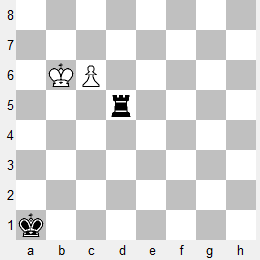Today I want to share this very humorous view of the 1957 Dublin Zonal. I am normally reluctant to post stuff unless I know all the background information - but I am posting hoping that my more learned readers can provide more information.
Chess Masters are Human
Mlle Pour-quoi PasSeveral years ago I asked a friend of mine what chess was all about. He answered vaguely without raising his eyes from the board, ‘The object of the game is to get a mate’. Well, what do you know! Since that had been my professed object from the age of sixteen I got right down to the game. We-ell, lets be honest – which of us is in it for the love of it?
I joined a club, learnt the moves and looked about me. After a while I realized there was one thing chess-players had in common – there were all different- if you know what I mean!! They say them-selves they are just tempermental. I’d say 25 per cent temper , the rest mental! I soon discovered there were degrees of chessmanship – rabbit, player, master and grandmaster – and I looked forward to any tournament that would bring some of the masters across so I could get a straight look at them. After all, if the rabbits and players were a crazy, mixed-up gang surely one could expect at least extreme individuality if not a little gentle lunacy from the masters. You can’t be all that brainy without being a little soft somewhere!
The first masters to come here were Robert Wade and John Fuller. I watched them curiously at the opening of the tournament as they stood, polite but aloof, discussing ‘variations’ with ‘patzers’, and signed autographs. At the close of the evening we all adjourned to the school kitchen for the inevitable Irish ‘last cup of tea’. The masters sipped theirs surrounded by admiring crowds whilst I, mentally wishing them all to Jericho, tackled a mountain of dishes. Suddenly Wade edged his way out of the crowd and, without a word, rolled up his sleeves and tucked into the washing!!
Since that auspicious beginning I have met many of the masters and discovered in each of them a type of dual personality that is absolutely fascinating. Over-the-board they are intellectual giants, serious, calculating, fighting brain to brain every inch of the way. Away from the game there are like children, delightfully natural and ingenuous, kindly and gentle, but above all, intensely human.
This year’s Zonal Tournament gave me a further opportunity to observe the masters in all their moods. When I went down first, I wandered over to the Czechoslovak contingent, obeying Rule No. 1 for Rabbits – ‘Never miss a Czech – it might be mate!’ There I found Ludek Pachman with unaffected simplicity telling some hair-raising jokes in beautiful, broken English, whilst his second, Georg Fichtl, beamed at him approvingly – without understanding a word!
Earlier in the day Fichtl, his head in a chess cloud, jay-walked across Dublin’s main thoroughfare causing a minor traffic jam. The guard on point duty collared him and produced the inevitable notebook and pencil. Fichtl just shrugged his shoulders indifferently and said, ‘I no speak English. I Czechoslovak chess-player’. The guard looked at him with a new respect and, holding up the traffic, ushered him majestically across.
Another master with language difficulties was Pal Benko. Despite the fact that he spoke neither English nor French and only had a smattering of German he became tremendously popular. Everyone liked the big Hungarian who, ‘speaks no English’, and that shortly became the only English phrase he did know. One afternoon when he went to post a letter, the tournament controller, Joe Keenan, brought him to the wrong entrance of the post office. When an official came to direct them Benko tapped him on the shoulder and, pointing to Keenan, said ‘He speaks no English!’
Altogether that tournament left me some great memories. Of wonderful game of chess?? Well, no, they leave me as bewildered as a duck in thunder. But of little things. Of Lothar Schmid, his back to the hotel authorities contentedly munching a leg of chicken obtained no one knows how; of Francisco Perez falling asleep in the dress circle at the Opera; of Kurt Dreyer peacefully sucking his silver-stemmed pipe and chuckling gently at the ‘patzer’ who asked how it was that he, coming from South Africa, spoke such good German; and Stenborg proudly displaying photos of his beautiful wife and children; of Doodah playing Irish dance music; of Giustolisi, the sad-eyed Italian, who had there fiancées in Rome and wanted one in Ireland; of Gligoric tying himself in knots to progressive jazz; of Conrady playing table tennis like a ballet dancer; of Alexander fussing about the lack of formality of the tournament, then shrugging his shoulders and saying, ‘Sure I’m Irish myself!’; of Durao gazing dismally into a mirror and commenting rather sadly, ‘You know every man in Portugal is more handsome than I’ and of the inimitable Pachman laughing so much over a game of poker that he rolled fully-dressed into the sea.
Though I’ve never managed to get a mate, live or otherwise, it has been wonderful to make the acquaintanceship of these kings of the board, these charming chess nuts who combine genius with simplicity, and brilliance with naivety to make such delightful and unusual companions. And who know, some day perhaps, I may be able to regard them all as chess mates?
‘The Chess player's Bedside Book’, Ray Keene, Ray Edwards (eds) Batsford, 1975.



